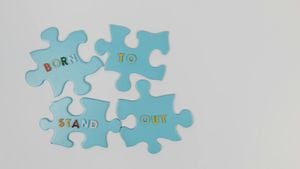A chorus of voices from various human rights organizations has come forward to express deep concern for the well-being of imprisoned Iranian activist and Nobel Peace Prize laureate Narges Mohammadi. These groups are calling on the United Nations Human Rights Council (UNHRC) to step in and advocate for Mohammadi’s immediate medical release amid alarming reports about her deteriorated health, aggravated by years of incarceration and harsh conditions.
The Free Narges Coalition, which includes over 40 human rights groups, has submitted a letter to the UNHRC urgently requesting Iranian authorities to grant Mohammadi medical furlough on humanitarian grounds. According to the signatories, this is necessary for her to receive comprehensive care for serious medical issues. The appeal takes on added urgency as it coincides with Iran's upcoming review under the Universal Periodic Review (UPR) mechanism by the UN, which examines the human rights records of all UN member states every four and a half years.
Narges Mohammadi, who has made significant strides as a human rights advocate, journalist, and author, has been incarcerated since November 2021. Currently serving multiple sentences totaling over 13 years, her imprisonment arises from charges of “propaganda activity against the state” and “collusion against state security.” Unfortunately, she has spent over a decade of her life behind bars, relentlessly advocating for women's rights and civil liberties.
The NGOs underscored the grievous circumstances surrounding Mohammadi’s health. The letter states, “Years of imprisonment and months of solitary confinement have severely compromised Mohammadi’s health, leaving her with multiple serious conditions.” The path to recovery is futile within the confines of the prison, as mere hospital visits fail to address her healthcare needs adequately. Last year, she was rushed to the hospital for emergency heart surgery after suffering multiple heart attacks.
Most recently, Mohammadi endured surgery aimed at addressing concerns of a potentially cancerous lesion found on her leg. Alarmingly, after undergoing such significant medical procedures, she was returned to prison after only two days—against her doctor’s recommendations. Such actions raise legitimate fears for her health and safety as family and legal teams worry about persistent refusals from prison authorities to facilitate proper medical care.
Her family had reported severe anxiety recently, fueled by prison officials' denials of her hospital transfers for necessary medical appointments. Earlier this month, Mohammadi's health appeared to worsen after prison authorities allegedly inflicted violence upon her as she organized protests against the execution of 30 political prisoners. The letter detailing her case described the authorities' behavior as indicative of “callous disregard for her health and well-being” and pointed out persistent patterns of medical neglect faced by prisoners.
The United Nations High Commissioner for Human Rights previously issued statements expressing deep concerns for Narges Mohammadi, urging the Iranian government to release her and others who are tortured and denied medical care within the prison system. Advocates worry about the broader climate of repression facing human rights activists and dissenters within Iran, especially following the recent protests against the government.
Attention to Mohammadi's case is becoming relentless not just due to her prominence but also because it symbolizes the plight of countless other activists pursuing human rights reforms and the challenges they face from the Iranian state. Since her recognition by the Nobel committee last year, which honored her for her commitment to fighting for women’s freedom and human rights, there has been increased scrutiny of her treatment and calls for her release.
Parallelly, another alarming incident occurred within Iranian prisons. Reports indicate another political prisoner, Saeid Gharibi, set himself ablaze to protest against his conditions and unfair sentence. This desperate act has drawn more attention to the oppressive atmosphere surrounding dissent within the country.
Surging internal dissent triggered by years of stagnant economic conditions, rampant corruption, and governmental failures, has sparked waves of protests across Iran. The populace has expressed frustration through demonstrations and civil initiatives, fueling movements aimed at restoring rights and freedoms. With the presidency of Donald Trump looming on the political horizon, concerns have escalated within many factions, worrying about renewed sanctions and tougher stances against Iran.
Mohammadi’s health crisis highlights the urgent need for international attention on Iran’s human rights violations, particularly the treatment of its prisoners who stand accused merely for championing justice. For now, the future of Narges Mohammadi and many others like her remains uncertain. Activists and supporters worldwide persistently advocate for their rights, seeking the most fundamental of human needs—dignity, healthcare, and freedom.



